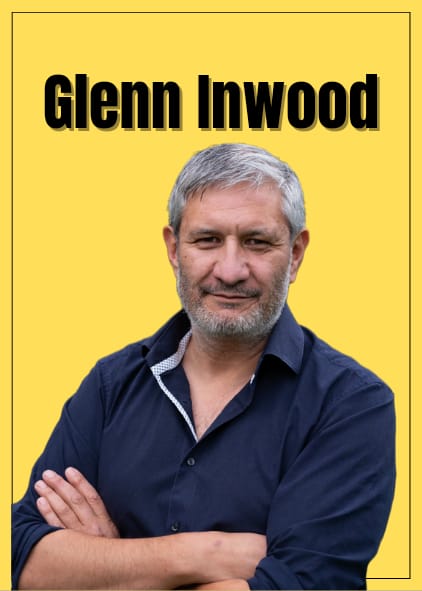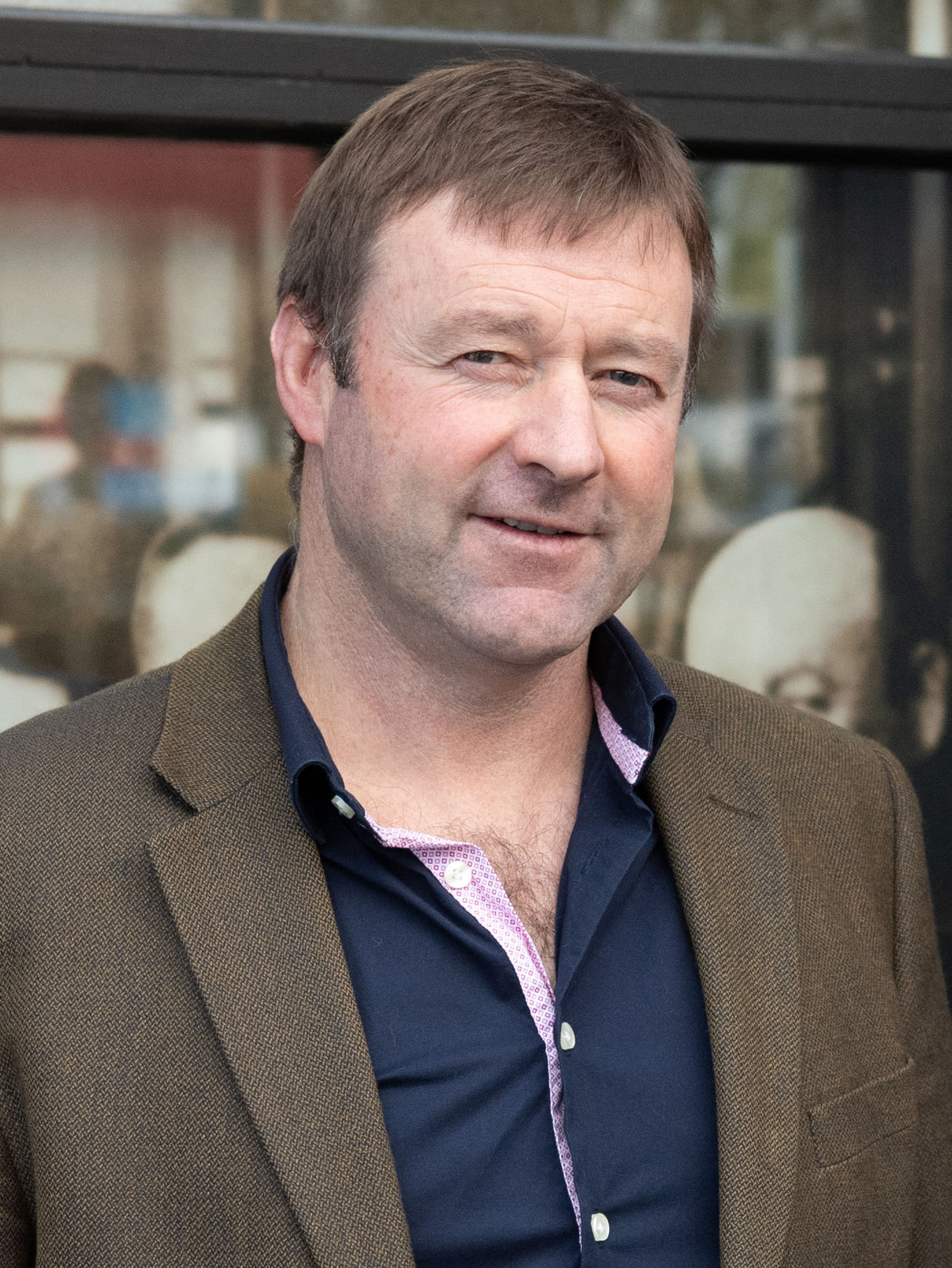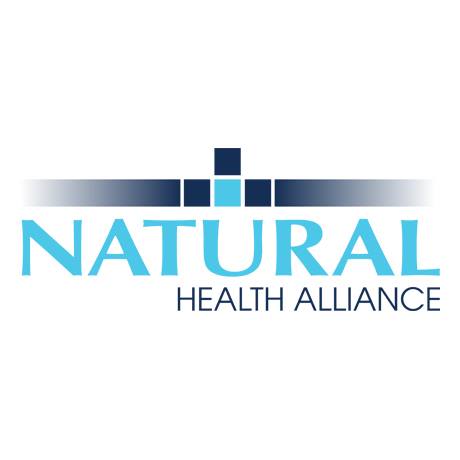Intelligence Report on Glenn Inwood

Introduction
Glenn Hema Inwood, born in 1968, is a polarizing New Zealand public relations specialist and right-wing political operative. Known for his work with controversial industries like Japanese whaling and tobacco, as well as his involvement in far-right political activism, Inwood has become a significant figure in New Zealand’s socio-political landscape. His career spans journalism, public relations, and political organizing, with notable controversies stemming from his affiliations and actions. This report provides a comprehensive profile, including speculative insights into his motivations and impact, as requested.
Biography
Glenn Inwood was born in 1968 and is of Māori descent, affiliated with the Ngāti Kahungunu and Ngāi Tūhoe iwi. Raised by a Pākehā family in New Zealand, his upbringing likely influenced his perspective on cultural and political issues. He pursued higher education at the University of Canterbury, studying Māori language and law, which equipped him with skills in communication and legal understanding. Little is known about his personal life, such as family or hobbies, as public records focus primarily on his professional endeavors.
Biographical Details | Information |
|---|---|
Birth Year | 1968 |
Ethnicity | Māori (Ngāti Kahungunu, Ngāi Tūhoe) |
Upbringing | Raised by Pākehā family |
Education | Māori language and law, University of Canterbury |
Career
Journalism and Early Career
Inwood began his career in journalism, working as a writer and editor for prominent New Zealand newspapers, including the Christchurch Star, The Press in Christchurch, and the Evening Post in Wellington. He also produced Radio New Zealand’s flagship program, Morning Report, honing his media and communication skills. In 1999, he transitioned to a communications manager role at Te Ohu Kai Moana (Treaty of Waitangi Fisheries Commission), where he managed public relations for the organization.
In 2000, Inwood won the Public Relations Institute of New Zealand’s Crisis Communications Award and Supreme Award for his “Stop The Wall” campaign on behalf of Waterfront Watch in Wellington, demonstrating his early prowess in public relations SourceWatch: Glenn Inwood.
Political and Public Relations Roles
Inwood briefly served as press secretary for Lianne Dalziel, Immigration Minister in the New Zealand Labour Party government, in 2000. However, his simultaneous work with the Treaty of Waitangi Fisheries Commission, which was hosting the World Council of Whalers’ conference, led to a conflict of interest. Prime Minister Helen Clark deemed his whaling connections “distasteful,” prompting his resignation on September 28, 2000 SourceWatch: Glenn Inwood.
In 2003, Inwood founded Omeka Public Relations, a Wellington-based firm that represented clients such as the Institute of Cetacean Research, a Japanese organization advocating for the whaling industry. His role as a spokesperson earned him the nickname “Ginza Glen” from anti-whaling activists due to the controversial nature of his work Wikipedia: Glenn Inwood. Omeka is now defunct, but Inwood continues to operate Spin It Wide, a media company distributing press releases for Imperial Tobacco, further aligning him with contentious industries Wikipedia: Glenn Inwood.
Inwood has also worked as a PR consultant for organizations like Te Ohu Kaimoana, Japan Fisheries Agency, Japan Whaling Association, Species Management Specialists, and the World Council of Whalers. Notably, he organized a 2003 Australasian tour by Dr. Ray Gambell, former International Whaling Commission secretary, to advocate for ending the commercial whaling moratorium Wikipedia: Glenn Inwood.
Career Highlights | Details |
|---|---|
Journalism | Writer/editor for Christchurch Star, The Press, Evening Post; produced Morning Report |
Communications | Communications manager at Te Ohu Kai Moana (1999); press secretary for Lianne Dalziel (2000) |
Public Relations | Founded Omeka Public Relations (2003); operates Spin It Wide for Imperial Tobacco |
Awards | PRINZ Crisis Communications and Supreme Award (2000) for “Stop The Wall” |
Controversies
Whaling Industry Involvement
Inwood’s most prominent controversy stems from his role as a spokesperson for the Institute of Cetacean Research, which supports Japan’s whaling activities. His defense of whaling, including dismissing Sea Shepherd’s claims during the 2010 Ady Gil incident—where a Sea Shepherd vessel was rammed by a Japanese whaling ship—drew significant criticism. Inwood called the claims a “publicity stunt,” asserting that Sea Shepherd was at fault SourceWatch: Glenn Inwood.
In 2009–2010, Inwood organized spy flights from Albany and Hobart to locate Sea Shepherd’s vessels, funded by Omeka Public Relations. Early reports suggested he posed as a government employee for search and rescue purposes, prompting condemnation from Australian Prime Minister Julia Gillard and Greg Hunt. No charges were filed, but the incident led to a parliamentary bill by Rachel Siewert to ban such activities ABC News: PR guru 'paid for whalers' spy flights'. A caricature from the National Library of New Zealand depicts Inwood on a whaling ship, highlighting public backlash National Library: Glenn Inwood.
In a 2006 Sunday Star Times article, Inwood defended his work with whalers, arguing that they have a right to whale and that regulated commercial whaling could protect whale stocks. He criticized New Zealand’s opposition as bigoted and questioned the distinction between whaling and whale watching Jennifer Marohasy: A Nation of Bigots.
Political and Ideological Affiliations
Inwood’s establishment of Resistance Kiwi in 2021, described as a far-right pseudo-news outlet, and Better Wellington, a conspiracy-aligned political campaign group, has further fueled controversy. Resistance Kiwi opposed COVID-19 vaccine mandates and government overreach, while Better Wellington targets local policies like cycleways, rate rises, and Māori wards, often using satirical content against Wellington’s mayor The Spinoff: Windbag.
His involvement in the 2022 parliamentary protests, where he acted as a go-between for protest leaders and Act Party leader David Seymour, and his participation in the 2024 Unsilenced anti-trans event at Tākina Events Centre, organized by Inflection Point NZ, highlight his alignment with contentious social and political issues RNZ: Ex-whaling lobbyist; The Spinoff: Unsilenced anti-trans event.
Tobacco Industry Ties
Inwood’s work with Imperial Tobacco through Spin It Wide, including his role in the Association of Community Retailers’ campaign against tobacco tax increases, has been criticized as astroturfing. The campaign was linked to his PR firm, raising questions about transparency NZ Drug Foundation: Big tobacco hires whaling guy.
Major Controversies | Details |
|---|---|
Whaling Spy Flights | Organized flights (2009–2010) to track protesters; condemned by Australian officials |
Ady Gil Incident | Dismissed Sea Shepherd’s claims as publicity stunt (2010) |
Political Resignation | Resigned as press secretary due to whaling ties (2000) |
Far-Right Activism | Founded Resistance Kiwi and Better Wellington, linked to conspiracy theories |
Tobacco Campaign | Linked to astroturfing for Imperial Tobacco |
Political Activism
Resistance Kiwi
In 2021, Inwood founded Resistance Kiwi, a platform dedicated to “freedom of thought, open discussion, and free speech,” initially formed to oppose perceived government overreach during the COVID-19 pandemic. The group advocated for individual rights, particularly against vaccine mandates, and has since focused on broader political issues, including legal and constitutional reforms Resistance Kiwi: About Us. Described as a far-right pseudo-news outlet, it operated on X, Telegram, and a now-defunct website, and was linked to spreading false rumors about Wellington’s mayor The Spinoff: Windbag.
Better Wellington
Inwood is the primary author of Better Wellington’s blog posts, a group aiming to influence Wellington’s local elections. Active since 2022, it endorses candidates and opposes policies like cycleways and Māori wards, often using controversial rhetoric. The group supported candidates like Andy Foster in 2022 and plans to back candidates in 2025 based on six policy pillars. Its social media presence is limited, with 69 X followers and 10 Facebook followers as of August 2024 Better Wellington: Glenn Inwood.
Other Political Involvement
Inwood’s role in the 2022 parliamentary protests involved facilitating discussions between protesters and David Seymour, indicating his influence in right-wing circles. His participation in the 2024 Unsilenced event, which opposed gender-affirming care, further aligns him with anti-trans activism, drawing protests from groups like Pōneke Anti-Fascist Coalition RNZ: Hundreds protest.
Speculative Analysis
Inwood’s career suggests a pattern of representing controversial industries and causes, possibly driven by a belief in their right to operate or by financial incentives. His defense of whaling and tobacco industries, coupled with his far-right activism, indicates a contrarian stance against mainstream progressive policies. His Māori heritage and Pākehā upbringing may contribute to a unique perspective on cultural and political issues, potentially influencing his advocacy for traditional practices or individual freedoms.
His involvement in Resistance Kiwi and Better Wellington reflects a commitment to challenging government authority and progressive agendas, aligning with libertarian or far-right ideologies. However, this has raised concerns about his role in promoting divisive narratives, particularly through conspiracy-aligned content. His journalistic background likely enhances his ability to craft compelling narratives, making him a formidable figure in public relations and political organizing.
The impact of Inwood’s actions on public discourse is significant, as his campaigns amplify polarizing views, potentially deepening social divides. His ties to political figures like David Seymour suggest influence within New Zealand’s right-wing establishment, though his controversial affiliations may limit his mainstream acceptance.




Comments